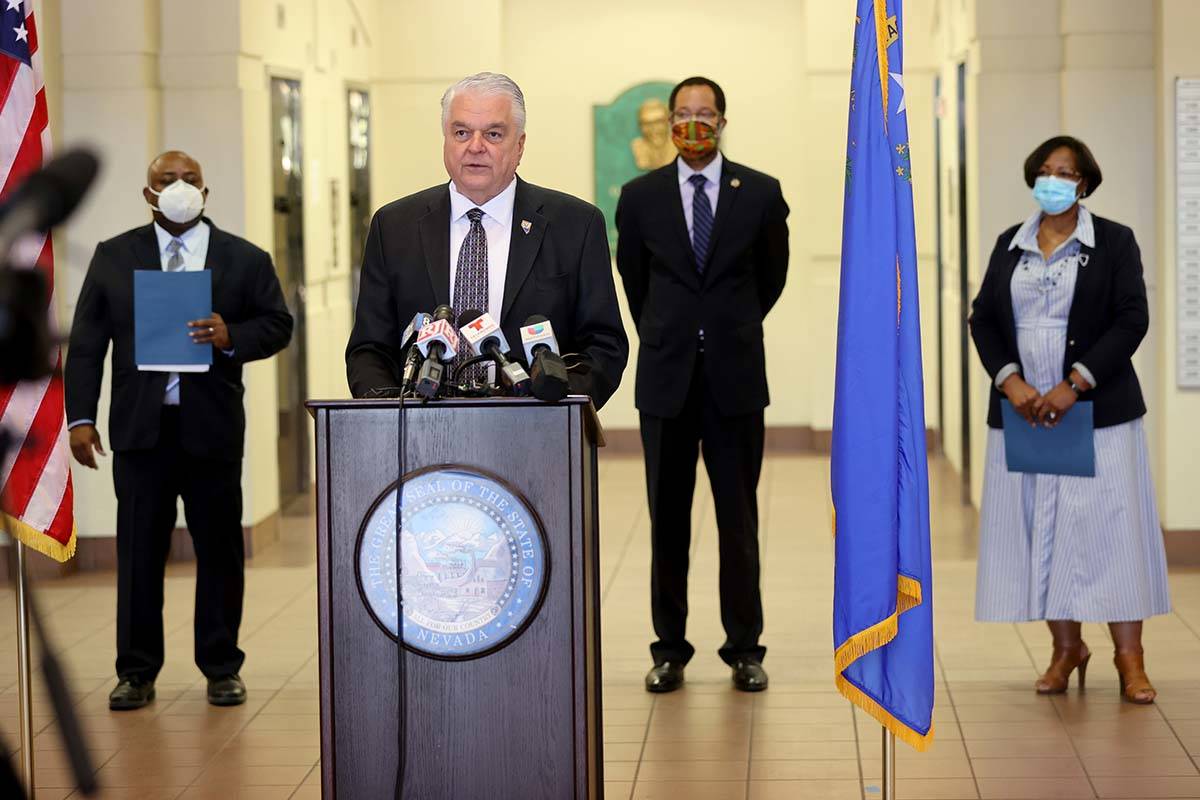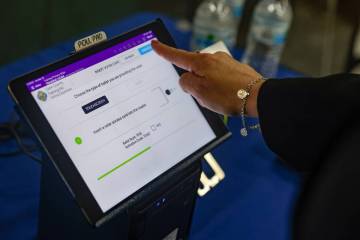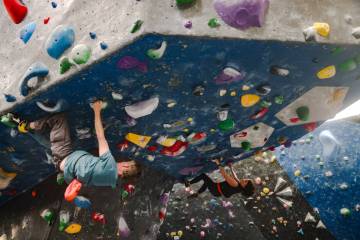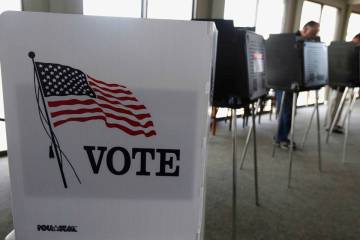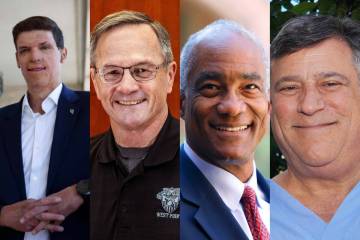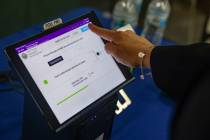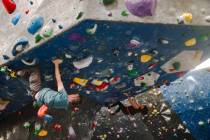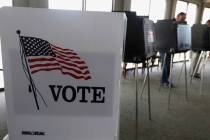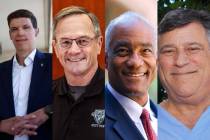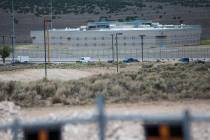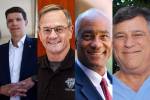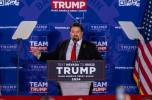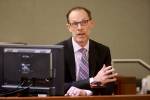Sisolak, elected Nevada officials discuss systemic racism, reform
Nevada may soon see updates to law enforcement training on de-escalation, implicit bias and racial profiling, elected officials said Friday during a news conference on how best to address systemic inequalities amid national unrest.
The briefing followed days of protests sparked by the May 25 death of George Floyd, a black man killed in Minneapolis police custody.
Nevada lawmakers in 2019 unanimously passed a bill that required police officers to complete annual training in those areas, but Assembly Speaker Jason Frierson, D-Las Vegas, said on Friday that there were no regulations in place to enforce the measure.
“That’s a problem. We’re going to make sure that we revisit that and make sure that that’s a priority,” Frierson said during the briefing, adding that lawmakers should also look into policies that would increase such required training.
He was joined by fellow elected black leaders Attorney General Aaron Ford and Assemblywoman Daniele Monroe-Moreno, D-North Las Vegas, at the briefing. Gov. Steve Sisolak also spoke.
Frierson also called for better data collection on police interaction, prosecution and sentencing by race throughout the state, with the goal of figuring out “how to better move forward.”
Monroe-Moreno, assistant Assembly majority leader, proposed increasing the amount of times law enforcement must undergo psychological evaluations. Monroe-Moreno worked as a corrections officer for 28 years.
“You have one at the beginning,” she said. “Perhaps we should continue that on an annual basis.”
Special session possible
But when those policy changes could come is not clear. The Legislature isn’t due to convene until next year.
Asked about the possibility of a special session — which Republican assemblyman and former Metropolitan Police Department Assistant Sheriff Tom Roberts called for this week to enact police reform — Sisolak said he is working with staff and legislative leadership to come up with an agenda and determine the best time for one but didn’t want to get into the details.
The governor said that he has had some “successful discussions” so far — some proposed measures would require new laws, and some would not. But Sisolak said he continues to welcome new ideas.
“Now’s the time to listen,” Sisolak said. “I’ve watched. I’ve listened. And I’m hearing what people have to say. We need to gather more information.”
Systemic reform
Changes should not be limited to policing, officials said Friday. The systemic racism Floyd’s killing once again brought to the forefront calls for systemic reform.
For many, watching the officer kneel on Floyd’s neck “was the last straw,” Monroe-Moreno said.
“It unleashed the deep-seated anger, pain and distrust that for 400 years was in the making, leading to what we now have as a crisis,” she said.
She noted that black communities have been hit harder by the coronavirus pandemic than other demographics from both a health care and economic perspective, with African Americans dying at a higher rate and facing a higher unemployment rate than the other groups.
“And now we have added the pain of George Floyd’s horrific murder caught in broad daylight, with us collectively asking when will it all end,” she said. “And it’s so much more than just the knee on George Floyd’s neck. So many people feel that there has been a knee on their neck for so many years in so many different situations.”
Ford said deaths like Floyd’s get headlines, but they are not the only instances of racism individuals face.
“For each incident that gains a national profile, there are countless others that never make the news,” Ford said. “Those families, those communities remain unseen, and they grieve alone. And those communities continue to feel invisible, and they continue to feel voiceless.”
Ford said he also supports those who protest peacefully, but he denounced the shooting of Metro officer Shay Mikalonis on Monday night.
“The right to protest does not extend to the right to commit acts of violence,” Ford said. “I will not condone acts of violence against police officers and against property. I reiterate my condemnation for the shooting of officer Shay Mikalonis. I pray for Shay.”
‘Double standard’
Ford and Sisolak on Friday also addressed a question about why Black Lives Matters protesters have been allowed to gather despite the governor’s ban on gatherings of 50 or more people — put in place to slow the spread of COVID-19 — while churches have been warned they could face legal ramifications for large gatherings.
Ford said that he churches can face enforcement because “there was an advertisement that people are actually going to violate the governor’s orders.”
“You can’t spit in the in the face of law and expect law not to respond,” Ford said.
Ford also drew the comparison to how law enforcement allowed groups protesting the state’s economic shutdown to rally in Las Vegas and Carson City over multiple weekends in April and May — as COVID cases climbed — and said that same right to protest has been afforded to those “protesting the fact that black lives matter.”
Sisolak blasted what he called a “double standard” between how reopen protesters and Black Lives Matter protesters have been treated, noting as an example the armed protesters in early May who gathered outside the Governor’s Mansion in Carson City.
“If these young black men that were out here protesting would have been doing that these last few days, what do you think would have happened?” Sisolak asked. “They can’t carry a backpack, but it was OK to have 200 people in front of my house carry AR-15s and AK-47s? That’s not right.”
“There’s a double standard,” he said, “and the double standard is going to stop in the state of Nevada.”
Contact Capital Bureua Chief Colton Lochhead at clochhead@reviewjournal.com. Follow @ColtonLochhead on Twitter.



